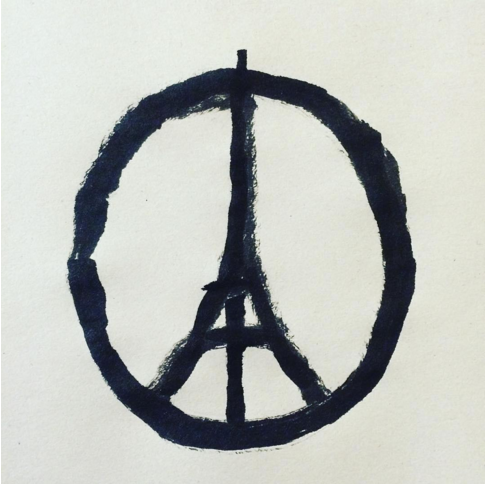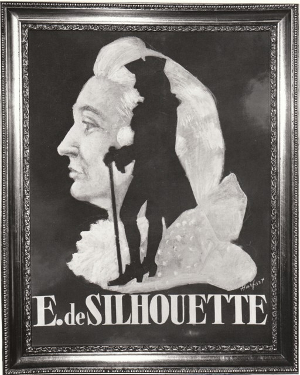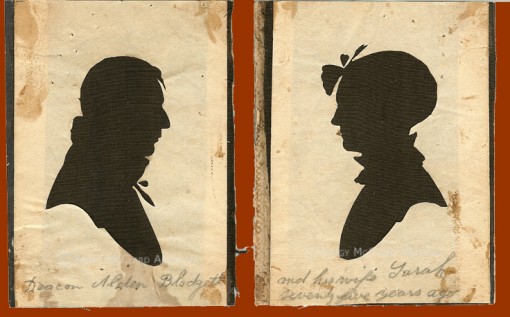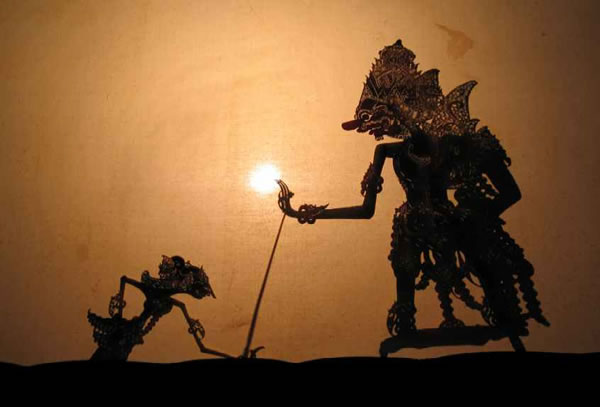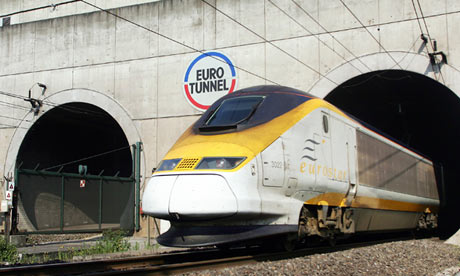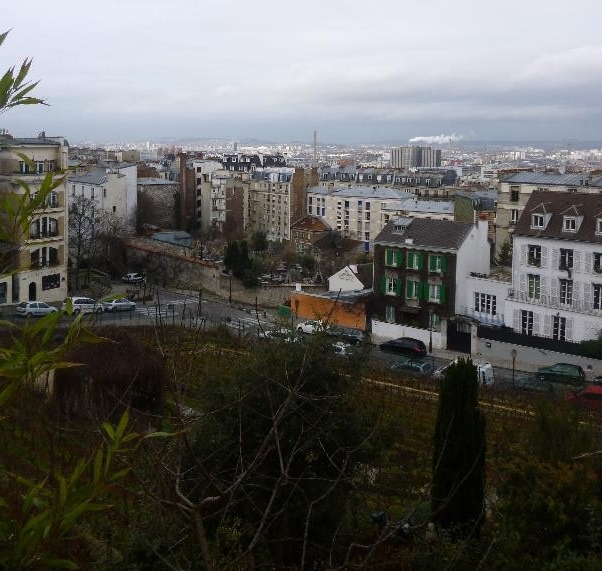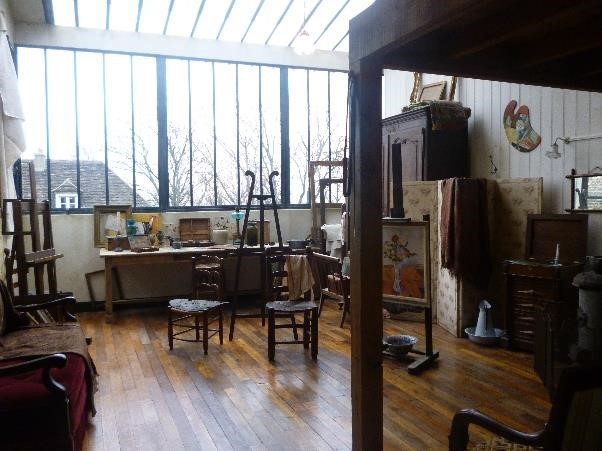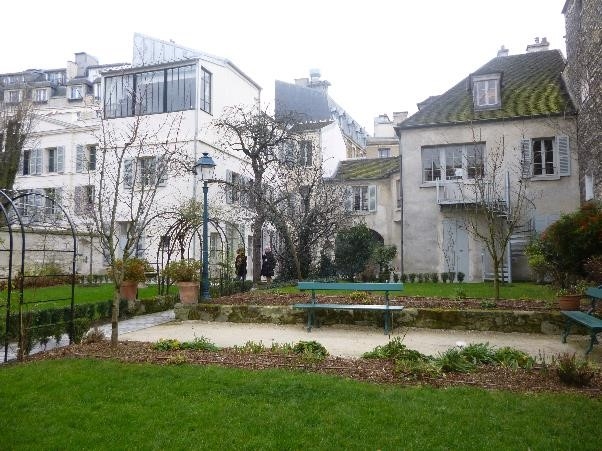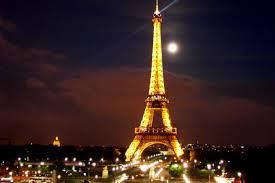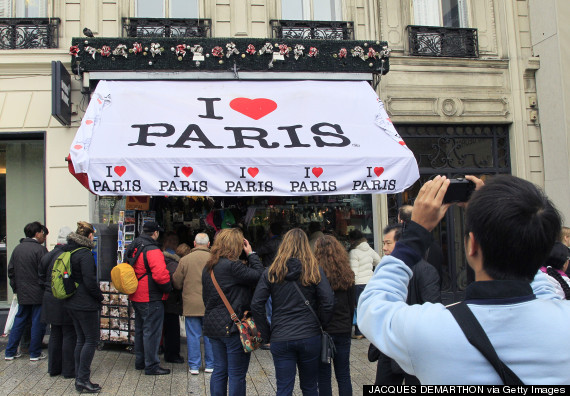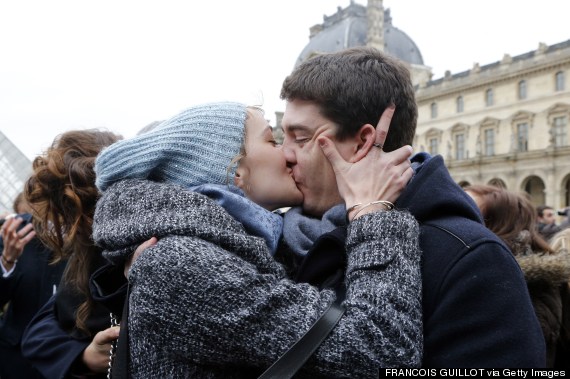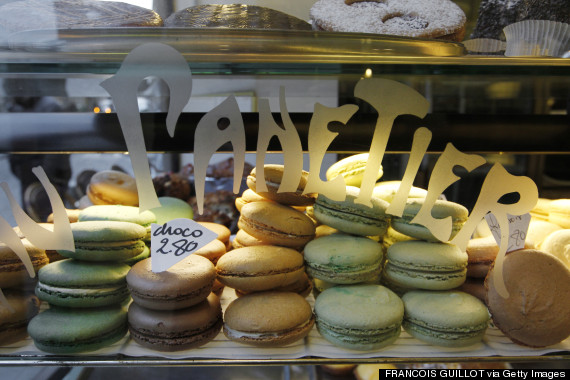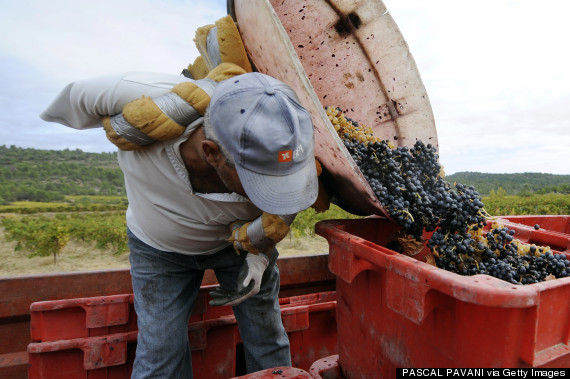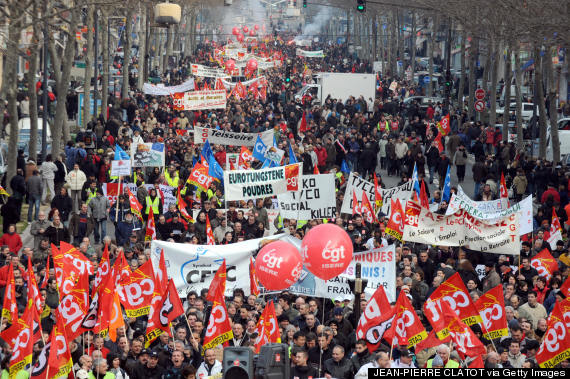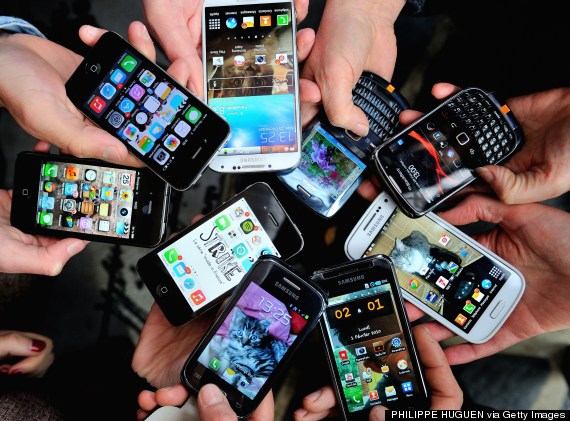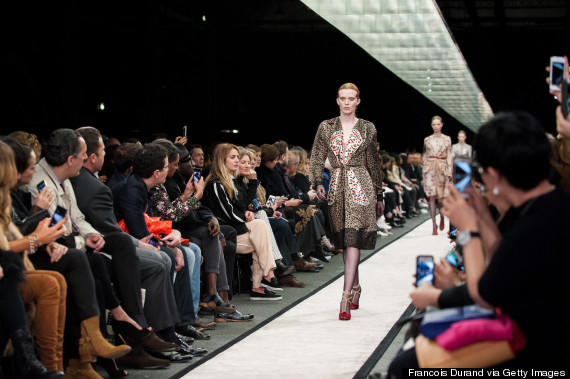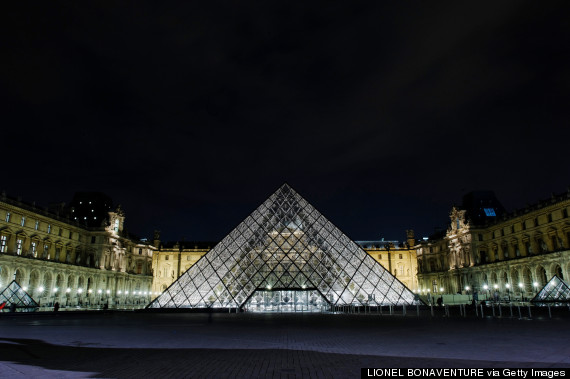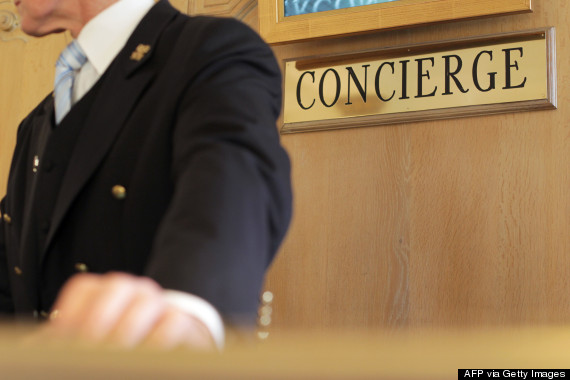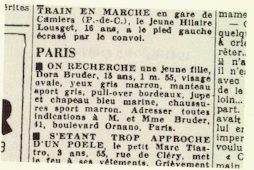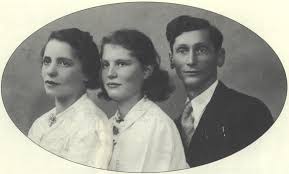posted by Simon Kemp
I’m sure you’ve already seen a lot about the attack on the Charlie Hebdo office in Paris and its aftermath (ongoing as I write) from English-language media. In the French press, one article in particular struck me as giving a helpful context to the events for non-French readers. It’s from the newspaper Libération, and it gives you a very quick crash course on Islam in France over the past few years. It’s entitled ‘L’islam, névrose nationale?’ (‘Islam, our national neurosis?’), was written by Cécile Daumas and Bernadette Sauvage, and published the day after the attack. You can find the original here. Below is an extract I’ve annotated for learners of French with difficult vocabulary picked out in red and listed beneath each paragraph, plus links in green to explain famous names and other cultural references.
L’islam, névrose nationale?
CÉCILE DAUMAS ET BERNADETTE SAUVAGET
7 JANVIER 2015 À 20:26
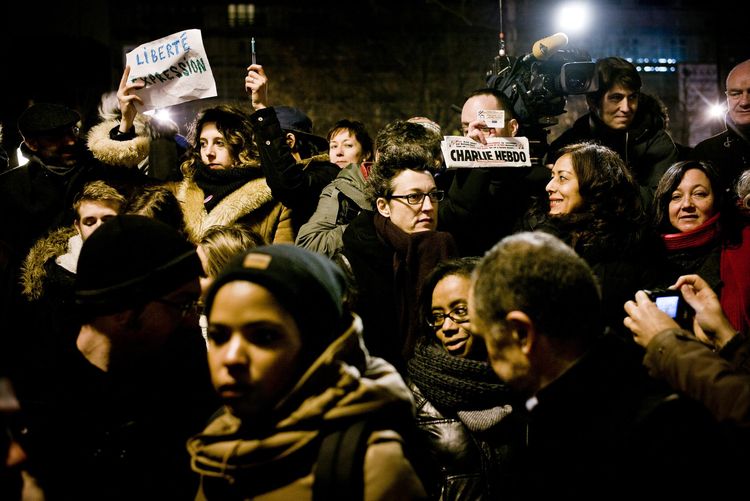
(Photo Guillaume Binet. MYOP)
Depuis des mois, et particulièrement ces jours-ci, la crispation identitaire est palpable. Ce mercredi matin sur France Inter, les auditeurs se sont réveillés en 2022 : la France a pour président le musulman Mohammed Ben Abbes. Au micro de la matinale, face à Patrick Cohen, Michel Houellebecq. Soumission, son dernier roman, sort ce jour en librairie. Les passages les plus violents du livre ne concernent pas tant l’instauration de ce nouveau régime islamique que des attaques aussi sporadiques qu’anonymes – sont-ce des musulmans ou des identitaires ? – qui ensanglantent le pays. Dans la fiction houellebecquienne, des corps jonchent aussi le sol, la France est au bord de la guerre civile…
la crispation identitaire: hardening or growing tension around the question of (national/religious/ethnic) identity
un auditeur: a listener
la matinale: breakfast show (hosted on France Inter by Patrick Cohen)
aussi sporadiques qu’anonymes: ‘as sporadic as they are anonymous’
identitaires: hard-right nationalists associated with the identitaire movement
ensanglanter: to make bloody
joncher: to lie strewn over
L’hebdomadaire Valeurs actuelles, lui, vient tout juste de boucler sa une : «Peur sur la France – Islam, et si Houellebecq avait raison ?» avec la photo d’une femme en niqab bleu-blanc-rouge. La rentrée littéraire de janvier commence à peine et la question de l’islam est à nouveau en tête de gondole des librairies. Depuis trois mois, Eric Zemmour est sur le devant de la scène médiatique avec sa dernière et énième polémique sur le sort des 5 millions de musulmans à renvoyer chez eux. Et voici Houellebecq qui prend le relais…
L’hebdomadaire : weekly magazine or newspaper. The ‘hebdo’ of Charlie hebdo is short for hebdomadaire.
boucler sa une: ‘boucler’ is to finish off or wrap up, ‘la une’ is the front page.
La rentrée littéraire: period in which French publishing houses concentrate their releases. The main rentrée littéraire is in September, when almost as many books are published as in the other months of the year put together. January is the focus of a smaller version of the rentrée.
en tête de gondole: literally ‘as a gondola head’, which is apparently also used as a marketing term in English, although I’ve never heard it. It means ‘promoted’, like putting a product on display at the head of a supermarket aisle.
sur le devant de la scène médiatique: ‘in the media spotlight’ (literally, ‘at the front of the media stage’).
énième: umpteenth
prendre le relais: take over (from someone)
Certes, le talent – évident – du romancier n’a rien à voir avec les provocations fausses et faciles du chroniqueur, mais tous deux se font les témoins d’une France en déclin rongée par le multiculturalisme et une forme de progressisme qui irait droit dans le mur. Zemmour a vendu 400 000 exemplaires de son Suicide français, paru en octobre, Houellebecq est parti pour engranger les mêmes scores. Plus confidentiel, moins polémique, le professeur de sciences politiques Laurent Bouvet vient de sortir cette semaine l’Insécurité culturelle: la crise économique n’expliquerait pas tout du malaise français, il faut aussi prendre en compte les relations conflictuelles à la mondialisation, aux élites, à l’islam. En septembre, le géographe Christophe Guilluy interroge dans la France périphérique «le rapport à l’étranger» qui ne serait jamais une évidence…
le chroniqueur: columnist (i.e. Zemmour)
se font les témoins de: ‘claim to be bearing witness to’
rongée: from ronger, to gnaw (a rodent is un rongeur in French). Here, figuratively, gnawed or eaten away.
engranger: to bag (the image is of getting your harvest into your barn)
Plus confidentiel: can mean ‘more confidential’, but here, more like ‘for a more limited readership’.
n’expliquerait pas: can mean ‘would not explain’, but here it has the sense of ‘according to the book, the economic crisis does not explain…’. ‘Perdrait’ in the paragraph below uses the conditional for the same effect.
la mondialisation: globalization
qui ne serait jamais une évidence: ‘which, according to him, is never a straightforward one’
Intellectuels, polémistes et écrivains en font-ils trop autour de l’islam et de la figure de l’étranger ? Pourquoi cette focalisation dans le débat d’idées ? Réelle préoccupation ou obsession tournant à la névrose française ? Avant Zemmour, il y avait eu, en 2013, l’Identité malheureuse d’Alain Finkielkraut, déploration d’une France qui perdrait ses racines face à une immigration mal intégrée. Renaud Camus, lui, a forgé la théorie du «grand remplacement». Selon lui, les pouvoirs politique et médiatique nient la réalité du changement de peuple et de civilisation. La droite et son extrême surfent sur la thèse, la gauche, «angélique et multiculturelle», est accusée de fermer les yeux.
en faire trop autour de qqch: to exaggerate, make too much of something
la racine: root (literal and figurative)
nier: to deny
surfent sur la thèse: literally, ‘surf on the thesis’, the idea being that the far right are making hay or having a field day with the idea that immigration has profoundly and permanently changed the nature of French society.
angélique: ‘angelic’, but not meant as a compliment! It suggests being out of touch with the real world, and blind to its dark side.
En fait, cette production littéraire et intellectuelle est le reflet de ce qui se joue depuis une quinzaine d’années sur le terrain politique et social. A l’instar d’autres nations européennes, comme l’Allemagne, la France se trouve dans une circonstance historique exceptionnelle: l’implantation sur son sol d’une nouvelle religion. Du point de vue de l’histoire, cela n’était pas arrivé depuis la chute de l’Empire romain et l’installation du christianisme. L’islam d’Europe, de son côté, est confronté à un lourd défi, celui de vivre en situation de minoritaires. En termes politiques, ce choc culturel et religieux donne les débats sur le voile à l’école à partir de 2003, la question de l’identité nationale quelques années plus tard, l’obligation pour les musulmans de donner sans cesse des preuves de leur adhésion au «modèle français».
A l’instar de: following the example of
la chute: fall
un lourd défi: a big challenge
Jusqu’aux années 90, pourtant, la question de l’islam reste relativement dépassionnée. Bon an, mal an, la religion, dernière arrivée dans l’Hexagone, prend sa place. De grandes fédérations musulmanes voient le jour. Des mosquées sont construites sans provoquer de polémiques. La classe politique, à travers ses maires, de gauche comme de droite, a semble-t-il «acté» la nécessité de donner sa place à l’islam.
dépassionnée: calm, not heated
Bon an, mal an: literally, ‘[averaging out] the good years and the bad ones’, so perhaps ‘through the ups and downs over the years’.
l’Hexagone: mainland France (because it’s shaped like one).
voient le jour: literally, ‘see the daylight’, so perhaps ‘come into being’.
acter: put into action
Mais au fur et à mesure des crispations identitaires, les discours sur la laïcité et la place de l’islam dans la République se durcissent. «Décomplexés», comme le dit Jean-François Copé, l’ex-patron de l’UMP. Une radicalisation se situe au milieu des années 2000, après les attentats du 11 Septembre. En 2006, les caricatures de Mahomet, reprises par Charlie Hebdo comme par plusieurs autres journaux européens, marquent un débat qui se mène, cette fois, au nom de la liberté de la presse.
la laïcité: secularism, the strict separation of religion from state
se durcir: harden
décomplexé: literally, ‘rid of your complexes’, so might translate as ‘more confident’ or ‘less inhibited’
l’UMP:Union pour un Mouvement Populaire, the main French right-wing party, and the party of Sarkozy and Chirac
Dans un système politique à bout de souffle, les batailles électorales sont de plus en plus contaminées par le sujet. En 2012, avec un FN remis en scène par la présidence de Marine Le Pen, la dénonciation des communautarismes s’installe au cœur de la campagne présidentielle de Nicolas Sarkozy, puis de celle de Jean-François Copé pour la présidence de l’UMP. Le malaise identitaire et son exploitation font, en partie, office de programme politique pour une droite déboussolée, ne sachant plus comment contenir la vague frontiste. Longtemps ignorée par la gauche, cette question identitaire, et donc le rapport à l’islam, finit par s’imposer aussi dans les rangs socialistes, avec sa part de tensions et de frictions. Sujet suffisamment explosif que François Hollande s’est bien gardé d’aborder pendant sa première partie de mandat. En deux ans et demi, il n’aura prononcé aucun discours sur un islam de France. Un vide que viennent combler les essais en librairie.
à bout de souffle: literally ‘out of breath’, perhaps here ‘running out of steam’.
FN: Le Front National, extreme right-wing party, which, unlike the UK National Front, is a major political force, polling up to 18% in French presidential elections.
le communautarisme: communitarianism (here used negatively in the sense of a fragmentation of society into separate communities)
faire office de: act as, serve as
déboussolé: bewildered, having lost your bearings (literally, de-compassed)
contenir la vague frontiste: ‘hold back the wave of National Front support’.
combler un vide: fill a gap
 1. ‘Ta bonne maman ne pourra pas être à Dieppe dimanche. Il lui faudra, au moins, un jour ou deux pour resserrer tout son bataclan.’
1. ‘Ta bonne maman ne pourra pas être à Dieppe dimanche. Il lui faudra, au moins, un jour ou deux pour resserrer tout son bataclan.’  Use in phrases: (Et) tout le bataclan. Et cætera, et tout le reste. Etc., and all the rest
Use in phrases: (Et) tout le bataclan. Et cætera, et tout le reste. Etc., and all the rest 2. Ah! si l’on n’avait pas la religion, la prière dans les églises, (…), si l’on n’avait pas la Sainte-Vierge et saint Antoine de Padoue, et tout le bataclan, on serait bien plus malheureux, ça c’est sûr…
2. Ah! si l’on n’avait pas la religion, la prière dans les églises, (…), si l’on n’avait pas la Sainte-Vierge et saint Antoine de Padoue, et tout le bataclan, on serait bien plus malheureux, ça c’est sûr…
